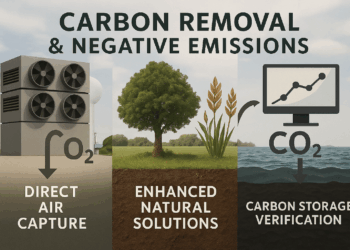The food industry significantly impacts the environment, from resource-intensive farming to packaging waste. Choosing brands that prioritize ecological awareness supports sustainable agriculture, reduces carbon footprints, and minimizes waste. By making informed choices, consumers can foster a greener food system that protects ecosystems and ensures resources for future generations.
Unilever and Danone are recognized leaders in sustainability due to their ambitious goals in reducing greenhouse gas emissions, sustainable sourcing, and transparent reporting. Companies like Nestlé, Mondelez, and General Mills have made significant progress but face criticism for specific issues like water use or packaging waste. Fast-food chains like McDonald’s, Yum! Brands, and Domino’s struggle with supply chain emissions, waste management, and limited adoption of sustainable practices.
Clif Bar and KIND Bars are known for their strong commitment to sustainability, including using renewable energy in production, sustainable sourcing, and eco-friendly packaging. Nature Valley and Blue Diamond Almonds also show significant efforts in sustainable agriculture and eco-conscious practices.
Lipton and Nescafé are leaders due to their focus on sustainable sourcing (e.g., Rainforest Alliance-certified tea and coffee) and reducing environmental impact through eco-friendly packaging and carbon reduction efforts. Tropicana shows strong efforts in reducing carbon footprint and sustainable juice sourcing.
Ben & Jerry’s is a leader in sustainability, focusing on fair trade ingredients, reducing carbon emissions, and eco-friendly packaging. Amy’s Kitchen excels in sustainable sourcing, organic ingredients, and renewable energy use. Chobani and Activia have made significant strides in sustainability, including recyclable packaging and responsible dairy sourcing.
Chipotle is a leader in sustainability, focusing on responsibly sourced ingredients, reducing waste, and promoting renewable energy use. Panera Bread excels in clean food initiatives, sustainable sourcing, and transparency in its environmental impact. Shake Shack has adopted eco-friendly practices, including sustainable packaging and commitments to reducing emissions.
Annie’s Homegrown leads with a strong focus on organic ingredients, sustainable farming, and eco-friendly packaging. Barilla has made significant commitments to reducing carbon emissions, water conservation, and sustainable wheat sourcing. Hellmann’s excels in promoting sustainable agriculture, including cage-free eggs and reducing food waste. Knorr, Prego, and Ragu have implemented some sustainability initiatives, such as improving packaging and promoting sustainable sourcing, but still face challenges in reducing their environmental impact.
Horizon Organic leads with its commitment to organic farming, sustainable dairy production, and reducing greenhouse gas emissions. Earthbound Farm and Whole Foods Market (365 Everyday Value) focus heavily on organic, sustainably sourced products and eco-friendly practices. Cascadian Farm and Bob’s Red Mill prioritize organic and non-GMO products, with significant efforts in sustainable farming and packaging. Honest Tea and Silk have made progress in using eco-friendly packaging and promoting sustainable agriculture but have room for improvement in reducing carbon emissions and enhancing supply chain transparency.
Rao’s Homemade excels with clean ingredient sourcing and efforts to minimize environmental impact through eco-friendly packaging. Tabasco has strong sustainability practices, including renewable energy use, sustainable farming, and waste reduction at its production facilities.
Your choices in the food industry have the power to drive change. By supporting brands committed to sustainability, you help reduce environmental impact, promote ethical practices, and protect natural resources. Together, we can create a healthier planet—one mindful food purchase at a time. Make your choices count for the future.








